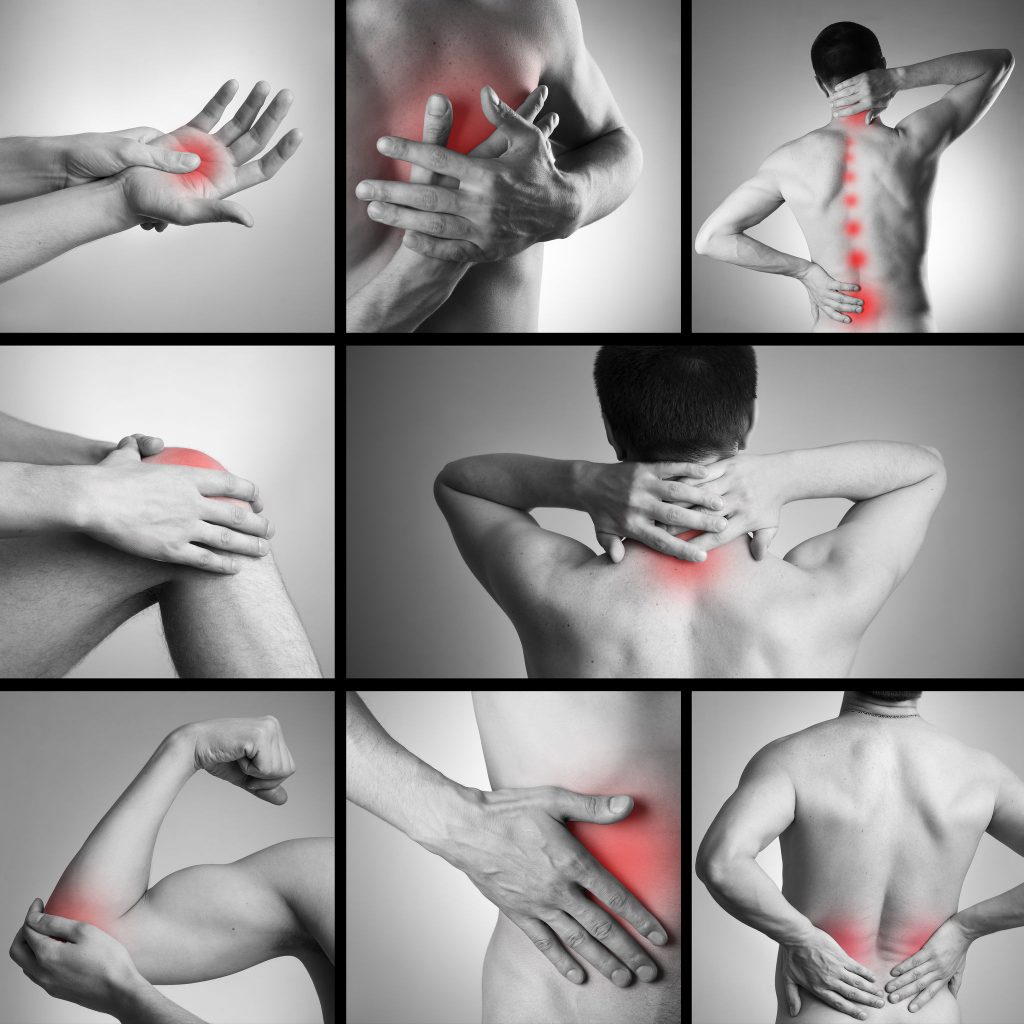How to Overcome Chronic Pain – A Step by Step Guide
Each year Chronic Pain Australia, the national voice of people living with chronic pain, organises National Pain Week to champion the needs of the many Australians living with some form of chronic pain. This year Pain Week is 22 – 28 July, 2019.
It’s estimated that less than 1/10 people with chronic (non-cancer) pain get effective care even though our current knowledge should allow that figure to be somewhere around 8/10.
What are the consequences of ineffective pain management?
- People with chronic pain are far more likely to be depressed
- People with chronic pain are almost 2.5 times as likely to be in poor health
- Those with daily pain are far less likely to maintain full time employment
- Almost 25% of relationships fail when one partner develops chronic pain
When management is ineffective, chronic pain can destroy lives, but the good news is we can do better with the tools we have… So how do we do better? And how do you get better?
Step one – Acceptance
Start by accepting your situation, don’t fight it but yield to it and start working out how to work with it. The more we fight and resist, the more we refuse to change our lives, to give into pain, the louder our bodies scream at us to pay attention.


Acceptance is allowing yourself to feel the fear, the anger and the grief that come hand in hand with pain. Acknowledging each of these things is the first step on the road to confronting and changing them.
Acceptance is letting go of ideals and expectations, of capabilities, of the way things were or how we hoped they would be. This is what makes acceptance so hard but the end product of acceptance is less pain, less distress, better coping and a better life.
Step two – Choose to be a survivor
Once you’ve faced up to how profoundly crap this is, you’re going to have to make a decision. When you tell the story of your life, are you going to be a victim or a survivor?
Hopefully once you’ve acknowledged and sat with the sadness and loss that so often accompanies pain, you’ll find a deep and driving desire to change it. Which is great – you’re going to need that!
You’ll have no doubt examined your priorities and realised that changing your pain needs to come first, before work, before study and for a while, before anything else.
So step three… Forgive yourself
Start forgiving yourself now, for the cancelled plans, for letting down your kids, your partner, your team. It’s going to happen and you’re going to have to get used to it for a while. So are they.
When we think about people being strong enough to get through things we don’t seem to have worked out that what actually takes the most strength, is to acknowledge that we are weak, that we are human and we are vulnerable. We have a lot to lose.
To be strong enough to beat chronic pain, we have to be strong enough to be vulnerable, strong enough to concede where we need to.
Step four – Know what you’re up against
Start by learning about pain,because if you’ve had pain for more than a few months, the pain has become not just a symptom but a whole different problem in its own right.
It now involves your hormones, your immune system and your gut as well as your nervous system; all those funky things you’re feeling (the fatigue, the mental fog, the pain you’re getting everywhere else now), they aren’t in your head, they’re real! So, from here on in, changing your pain is going to need a more comprehensive approach. The physical, psychological and neurological factors that are working to keep you in pain, they’ll all need to be addressed.
A good, up to date GP, Osteopath or Physiotherapist should be able to help you better understand your pain but the first and most important thing to understand is that there are heaps of things that affect your pain that have nothing to do with your injuries. These ‘things’ are different for everyone and working them out can give you a heap of extra tools to start turning the tide.
Step five – Build a team
A good multi-disciplinary team will work together not just along side each other.
You’re going to need;
– A good GP (and a long appointment). A good GP is one you can have an open chat with, who you feel heard by and whom you’re prepared to listen to. If that’s not your current GP, change. Having trust and open communication is not negotiable.
– An Osteopath or a Physiotherapist with a balanced approach of active and passive treatment strategies. Active strategies include exercise and activity prescription and passive strategies are the hands on treatments. These strategies will need to focus on improving your functional capacity, improving the pain itself comes second to this – you need to get your ducks in the right order so to speak. You also want someone who can help you set realistic goals and stage a recovery plan for you. They will redefine success for each stage of your plan so that you can see progress, it’s pretty hard to keep the faith on such a long road otherwise.
You may also benefit from;
– A Clinical or health psychologist to listen to you when even you are sick of hearing yourself talk about your pain. They can help you deal with the impact pain has had upon your life and help you develop strategies for dealing with the cognitive and emotional factors that contribute to your pain. They can help you get passed step one.
– An Exercise physiologist can develop exercise programs and routines that achieve your aims without being torturous. There is such a thing. They can also help support you and keep you accountable to yourself and your goals.
– A Specialist Pain Physician, these guys are the big guns. They can help you manage a medication and/or intervention plan that is effective. Drugs can be brilliant when they are used in the right patient at the right time so avoiding them is generally not ideal, what’s ideal is working through your concerns with your physician so that you can have your questions answered and arrive at a plan that suits you. If you’re still not sure, get a second opinion, and a third if need be. If at that point you’re still unwilling to follow the advice of the experts because it doesn’t agree with your ideals, go back and read step one again. None of this is ideal and the bottom line is that biologically, pain promotes pain.
Step six – Make time and space for recovery
Overcoming pain is no small feat, it takes a whole lot of time and commitment. Each person on the list above is going to ask you to do things, and each of them is going to take time. When it all seems too much, remember Pain has a way of taking a lot more than an hour or two a day.
Make time for the key pillars of health:
Movement – even 15-20 minutes a day can have a huge impact on a stressed out and overly sensitive nervous system. It doesn’t have to be vigorous or heavy, it doesn’t have to be sweaty but it does have to be consistent.
Eat well and sleep well – food and sleep tend to fall to the bottom of the heap when we live hectic lives in a hyper connected world, but these are two of the key areas we need to focus on to restore balance to a distorted immune and endocrine (hormone) system. These guys are a huge part of your pain volume control, poor sleep and a poor diet will leave your dial cranked up to max.
Disconnect from devices and stress, and reconnect with yourself, with loved ones and with nature. Experiment with mindfulness, reading or getting creative. Find things that help you disconnect from your pain and reconnect with the person you were before you had pain. I know they can feel lost to you at times but they are still in there somewhere, go find them. Spend time outdoors, get some sun on your skin and give your body the best chance of resetting your body clock. It’s even better, doing it with a friend.
Step seven –
Last but not least, just keep putting one foot in front of the other. These changes will eventually have a snowball like effect but it’s always slow to start. The path to recovery is never straight, there will be relapses and recurrences but there will also be wins. Celebrate them, they won’t have come easily and you will have earned them.
Osteopathic intervention for chronic pain has a focus on empowering people to manage their conditions so if you’ve had enough of pain and want some help in finding your way back to a better life, give us a call today on 03 8370 3044. Alternatively, book an appointment with Dr Della Buttigieg, our Senior Osteopath, who has a special interest in helping people living with chronic pain.
